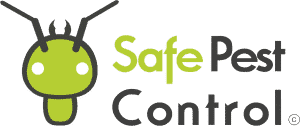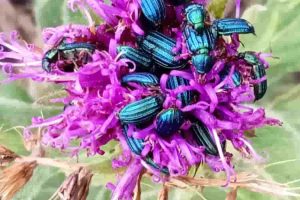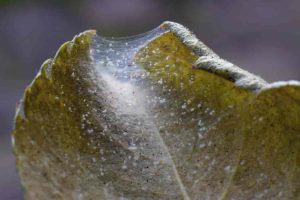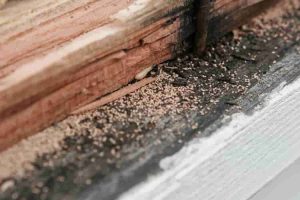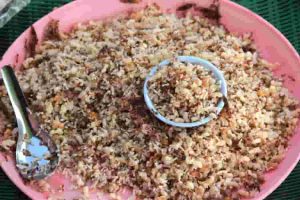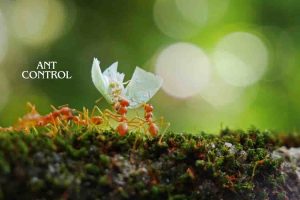Keeping our gardens and landscapes healthy and vibrant involves more than just watering and sunlight. Pests can wreak havoc on ornamental plants, lawns, and other greenery. Utilizing natural predators and organic treatments can be an effective way to protect our gardens from pests without harmful chemicals. For example, introducing ladybugs into our gardens can help control aphids and other small insects.
We can also implement organic treatments like neem oil or diatomaceous earth, which provide a safe, chemical-free solution to pest control. These methods not only protect our plants but ensure a safer environment for us and beneficial insects. Monitoring our gardens regularly allows us to catch any pest issues early and address them efficiently.
Proper pest management also helps in maintaining the aesthetic beauty and health of our landscaping. By using environmentally friendly methods, our landscapes can thrive, providing a peaceful haven for us to enjoy. For those interested, resources like the Natural enemies handbook offer more detailed guidance on biological pest control.
Understanding Garden Pests and Natural Predators
In our gardens and landscapes, pests can cause significant damage to plants. However, we can manage these pests naturally by encouraging beneficial insects and predators.
Common Pests and Their Impact on Plants
Pests come in many forms, from aphids to beetles, each affecting plants in different ways. Aphids, for instance, suck the sap from leaves, causing them to yellow and wilt. Japanese beetles chew through leaves, flowers, and fruit, leaving behind skeletonized foliage.
Caterpillars and moths can defoliate entire plants if not controlled. Mites and other tiny pests often go unnoticed until plants show signs of stress. Slugs and snails leave holes in leaves and may damage seedlings entirely. Each pest has unique behaviors, but the result is often decreased plant health and aesthetic damage.
Beneficial Insects and Natural Predation
To protect our plants, we can rely on beneficial insects that prey on pests. Ladybugs, for instance, and their larvae feast on aphids and small insects.
Praying mantises catch and eat a variety of garden pests. Lacewings and their larvae also target pests like aphids, caterpillars, and mites. Parasitic wasps lay their eggs in caterpillars or beetle larvae, ultimately killing the host.
Using these beneficial insects can reduce the need for chemical pesticides, making our gardens safer for the environment and us.
Organic Pest Control Methods
We can protect our gardens and landscapes from pests using organic methods that include natural treatments, cultural practices, and physical barriers. By integrating these strategies, we can maintain healthy plants without resorting to harmful chemicals.
Utilizing Organic Treatments
Organic treatments involve using natural substances to combat pests. Neem oil is a popular option as it repels a variety of insects and fungal diseases. Another effective treatment is insecticidal soap, which targets soft-bodied insects like aphids and spider mites. Diatomaceous earth is useful for controlling crawling pests by causing dehydration.
We also use garlic and compost teas for their pesticidal properties and to enhance soil health. Horticultural oil can be applied to smother insect eggs and larvae. These treatments are biodegradable and safer for the environment.
Cultural Practices for Pest Management
Cultural practices focus on creating conditions that are unfavorable for pests. Companion planting is a technique where certain plants are grown together to repel pests or attract beneficial insects. Crop rotation helps prevent pests and diseases from becoming established in the soil.
Maintaining soil fertility through healthy soil practices like adding compost and mulch can strengthen plants against pest attacks. Proper watering techniques, such as drip irrigation, reduce water on leaves, which can limit fungal diseases. Regular clean up of garden debris helps minimize pest habitats.
Physical Barriers and Manual Removal
Physical barriers and manual removal are effective, non-toxic methods for controlling pests. Using floating row covers can protect plants from insect damage while still allowing light and water to reach them. Erecting a fence prevents larger pests like rabbits and deer from entering the garden.
Handpicking pests off plants is a straightforward technique that can be particularly effective for larger insects. By removing these pests manually, we reduce their population significantly. Soap spray can be used to dislodge insects and can be easily washed off the plants afterward.
Implementing these organic pest control methods allows us to foster healthy and resilient gardens while protecting the environment.
Designing a Resilient Garden Ecosystem
In this section, we will explore how to select appropriate plants and how to foster biodiversity to build a garden ecosystem that naturally resists pests and thrives.
Choosing the Right Plants and Companions
Selecting the right plants is essential for a resilient garden. By choosing native species, we can ensure that our garden thrives in the local climate and soil conditions. Native plants are often more resistant to local pests and diseases, reducing the need for chemical interventions.
Companion planting is another key strategy. For instance, planting tomato alongside basil can help deter pests like aphids due to basil’s strong scent. Similarly, planting marigolds can repel nematodes that might harm other plants. Mixing sage with vegetables can also keep pests at bay.
A diverse plant selection creates a balanced ecosystem that helps control pest populations. When we plant a variety of species, we minimize the risk of any one pest wiping out an entire crop.
Encouraging Biodiversity and Soil Health
Healthy soil is the foundation of a resilient garden ecosystem. By using organic treatments like compost and mulch, we improve soil structure and fertility. Healthy soil supports beneficial organisms like earthworms and beneficial bacteria, which help plants absorb nutrients and fight off pests and diseases.
Encouraging biodiversity is crucial. A diverse ecosystem attracts natural predators of garden pests, such as ladybugs, birds, and spiders. These predators naturally keep pest populations in check.
Planting cover crops such as clover or alfalfa can improve soil health by preventing erosion and adding organic matter to the soil. These practices contribute to a robust garden ecosystem that can sustain and regulate itself, minimizing our reliance on synthetic pesticides.
Pest Control Considerations for Home and Environment
Pest control methods for home gardens and lawns need to prioritize safety and environmental awareness. We must adopt techniques that protect plants while minimizing risks to people and beneficial insects.
Safe Practices for Lawns and Ornamental Plants
When taking care of our lawns and ornamental plants, it’s vital to choose safe and effective pes control methods. We should use non-toxic methods like dormant oils and insecticidal soaps. These are safe for people and pets while being effective against pests like thrips, whiteflies, and harmful flies.
Additionally, maintaining a healthy garden ecosystem can discourage pests. We can use natural predators such as ladybugs to control specific pests. Keeping plants healthy by providing proper nutrients and water strengthens their resilience against infestations.
List of Safe Practices:
- Use dormant oils to control overwintering insects.
- Apply insecticidal soaps for soft-bodied pests.
- Introduce natural predators like ladybugs.
- Maintain proper watering and fertilization.
Regulatory and Environmental Awareness
Awareness of regulations and environmental impacts is essential. We should adhere to guidelines set by regulatory bodies like the EPA to ensure safe pesticide use. Using eco-friendly products helps protect our soil, water, and non-target organisms.
By choosing products labeled as safe for the environment and following best practices, we can reduce the harmful effects of chemicals. It’s important to be informed about which pesticides are banned or restricted in our area to avoid penalties and environmental harm.
Key Points of Environmental Awareness:
- Follow EPA guidelines for pesticide usage.
- Choose eco-friendly products labeled as safe.
- Stay informed about restricted pesticides.
- Avoid chemical overuse to protect soil and water.
By focusing on safe practices and staying regulated, we can effectively manage pests in our lawns and gardens while protecting our home and environment.
On-Time Service

5 STAR SERVICE BASED ON 100+ GOOGLE REVIEWS
PET & FAMILY FRIENDLY TREATMENT

ALL YEAR-ROUND PROTECTION
Take Back Control Now
8
REASON TO CHOOSE SAFE PEST CONTROL
- Guarantee protection all year-round
- 30 Years Collective Experience
- An impeccable reputation across Sydney's Suburbs
- Certified treatments & written Warranty On all work carried out
- Family Owned & Operated
- Rated #1 Pest Control In Sydney NSW
- No Mess, No Smell
- Family & Pet Friendly Treatments
REQUEST A QUOTE
